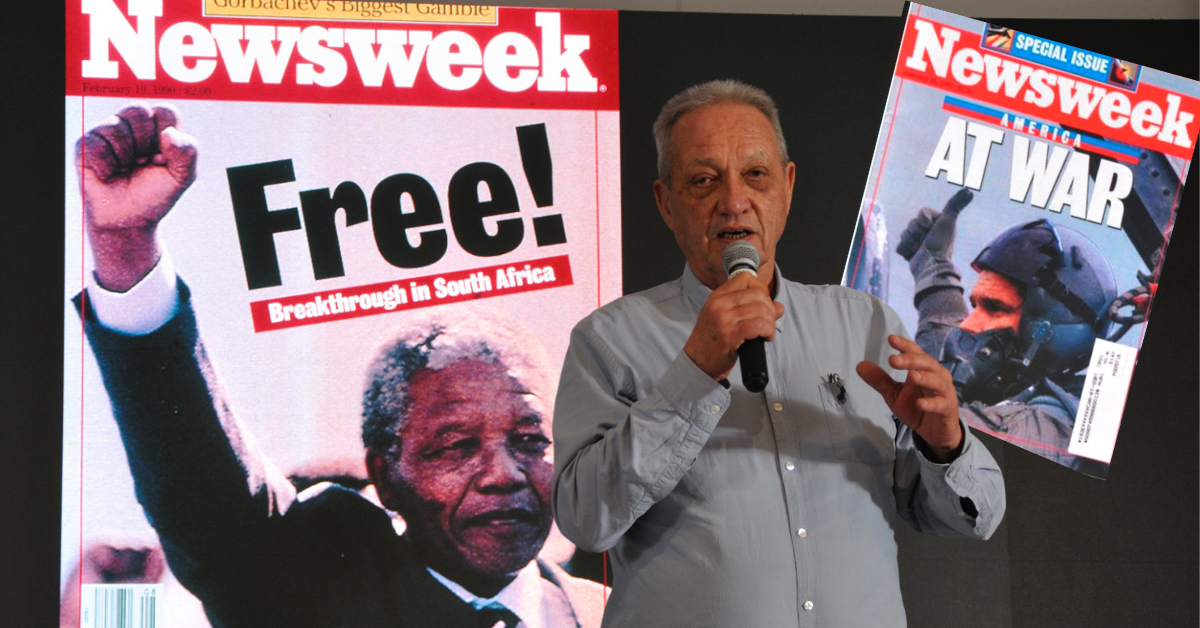
20 Jul Q&A With Mark Berry Peters: On Professional Photography
Mark Berry Peters was a world renowned photographer and war journalist, who worked for Newsweek for over twenty years, with just as many cover photos to boast about. His remarkable life story absolutely floored the audience. But we were curious to know what happens to a photographer when they retire, and how did the digital age affect photography, in Peters’ view. Here’s our Q&A with Mark Peters:
IC: When was the last time you took a professional picture?
MP: A long while ago. It’s been 15 years! I gave up photography after Newsweek. Once I got to the top, there was really nothing else to aspire to. I’d seen it all. Met everyone. I wanted to retire, find my roots. I needed to unpack the sorrows and joys of travelling the world and seeing all that I had seen. I wanted to put my feet up. Start a new life.
IC: Do people who know of you ask you to take their picture?
MP: Maybe it’s because of my grumpy old man demeanour, people think twice! (Laughs) I’m lucky that I never had to do social or wedding photography. Those kinds of shoots never enticed me. I am a war photographer. When you’re at war, people don’t have time to pose for the camera – what you capture is real time blood, sweat and tears. It’s a powerful thing.
IC: How do you feel about selfies, Photoshop and people becoming famous for taking pics of their lunch?
MP: Well, it’s a win/lose situation right there. With a cellphone, you can take a pic, photoshop it, make it pretty. Tech makes it so much easier. But digital takes away jobs from real professionals – people with real experience and understanding of the way light works, of how you understand the situation you are capturing, and lastly, knowing what distance to keep. It’s a talent that is basically cheapened by digital tech. So I guess in that sense, I’m not surprised we get more pics of food on plates than thrilling stuff!
IC: What was your favourite type of photograph to take?
MP: I love shooting ‘A Day in the Life Of’ type of photo. Photographers are storytellers; we use the visual medium to convey the feeling, mood, atmosphere, personality, charm and terror of a place. Photographing places like Cambodia produced colourful, beautiful and sad images all at once. Just like life.
IC: In your opinion, what is your best photograph?
MP: It would have to be the US pilot who ignited the Gulf War. It was on the cover of Newsweek with the title: America at War, and the picture was actually made into a medal. I am super proud of that. No journalist had achieved that kind of status. It was a real career win for me; there were hundreds of journalists in that war.
IC: You mentioned that like a soldier, you also suffered from PTSD (Post Traumatic Stress Disorder) after a war job. How did you cope?
MP: I didn’t overthink it. I photographed whatever was in front of me, whether it was Mother Teresa, George Bush, or a tiny dying child in Africa. It was only later, when I was in New York and had a moment to look through the rolls of photos I took, did I relive the horrors of Rwanda, I relived the pain and the suffering. It would bring back a lot of emotions. But through this, I made the world aware, and was able to tread where no sane man would, so I comfort myself in that knowledge. It’s the burden I have to bear, but I bear it proudly.









